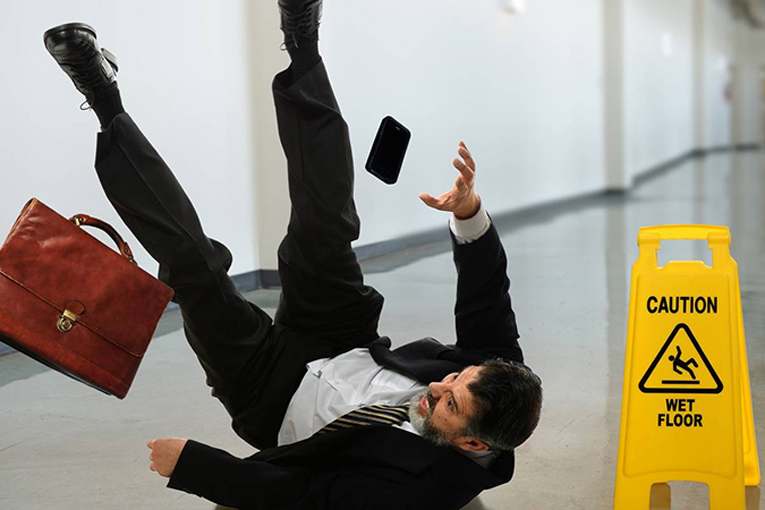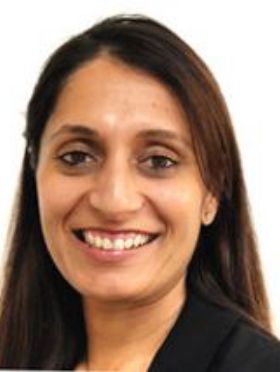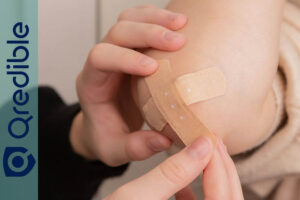Guide to Slip and Fall Claims under UK Law

Have you been the victim of a slipping accident and are you wondering if you are eligible for compensation? Slips, trips, and falls are common incidents that can result in significant injuries for the victims. In the United Kingdom, individuals who have suffered such accidents may be eligible for compensation. A skilled personal injury lawyer can guide you through the intricate process of filing a claim, from establishing liability to gathering evidence and navigating legal proceedings. Act promptly to explore your available options.

This comprehensive guide, combined with the expertise of a reputed lawyer, will equip you with the knowledge needed to seek fair compensation for your injuries.
Where can slips, trips, and falls occur?
Understanding the different locations where slips, trips and falls may occur is crucial in determining liability and pursuing compensation.
Here are some common places where slips, trips, and falls can happen:
- Public places (sidewalks, parks, playgrounds).
- Educational institutions (schools, universities).
- Healthcare facilities (hospitals, nursing homes).
- Private properties (homes, apartment buildings).
- Retail establishments (shops, supermarkets, restaurants).
- Workplaces (offices, factories, construction sites, warehouses).
Are slips, trips, and falls accidents common in the uk?
The most recent health and safety at work report revealed a concerning statistic: out of the 561,000 reported non-fatal workplace injuries in 2022-23, a staggering 179,520 cases, or 32%, were caused by slips, trips, and falls on the same level. Additionally, the Royal Society for the Prevention of Accidents (RoSPA) estimates that over 800,000 people attend emergency departments annually due to slip, trip, or fall incidents in public places.
What causes slips, trips, and falls?
Slips, trips, and falls can occur due to various hazardous conditions, many of which are preventable with proper precautions:
- Inadequate lighting (dimly lit areas or poor visibility): a stairwell in an office building with burnt-out light bulbs, making it difficult to see potential trip hazards.
- Poor maintenance (worn stairs, handrails, or walkways): a cracked and uneven sidewalk outside a restaurant that has not been repaired, posing a trip hazard for customers.
- Obstacles or clutter (cables, boxes, or equipment in walkways): extension cords and loose wires scattered across a factory floor, creating a potential tripping hazard for workers.
- Wet or slippery surfaces (spills, leaks, or improper floor cleaning): a recently mopped supermarket aisle with no warning signs, causing a customer to slip and fall.
- Uneven or damaged flooring (loose carpets, tiles, or floorboards): a loose floor tile in a hotel lobby that has become dislodged, creating a trip hazard for guests.
Which types of injuries qualify for compensation?
Slips, trips, and falls can lead to a wide spectrum of injuries, ranging from minor to severe and potentially life-altering:
- Sprains and strains: these soft tissue injuries can affect joints, muscles, and ligaments, causing pain, swelling, and limited mobility.
- Bruises and contusions: blunt force trauma can result in bruising, discoloration, and tenderness in the affected area.
- Fractures and broken bones: falls can cause fractures in various parts of the body, such as the wrists, arms, hips, or legs.
- Head and brain injuries: slips and falls that involve head impact can lead to concussions, traumatic brain injuries (tbis), or even life-threatening conditions like skull fractures or brain haemorrhages.
- Spinal cord injuries: severe falls, particularly from heights, can cause damage to the spinal cord, potentially leading to partial or complete paralysis.
- Lacerations and cuts: contact with sharp objects or surfaces during a fall can result in open wounds, requiring medical attention and potential stitches.
Who can claim for injuries from slips, trips, and falls under uk law?
Under uk law, there are two main types of individuals who can claim compensation for injuries sustained from slips, trips, and falls, both in the workplace and public places:
1. Direct claimants
These are the individuals who directly experienced the accident and suffered injuries as a result. They can file a claim for compensation against the responsible party, whether it’s an employer, property owner, or occupier.
2. Secondary claimants
In cases where the injured person is unable to pursue a claim themselves, due to severe injuries or fatalities, their friends and family members can claim compensation on their behalf. Secondary claimants can include:
- Spouses or partners.
- Parents or guardians.
- Children or dependents.
- Siblings or other close relatives.
What are the essential steps to pursue a slips, trips, and falls injury claim in the uk?
If you have suffered an injury due to a slip, trip, or fall, it is crucial to take the necessary steps to protect your rights and pursue a claim for compensation. The process involves several essential steps, including:
- Seek medical attention: your health and well-being should be the top priority. Seek immediate medical attention for your injuries, even if they seem minor initially. Proper documentation of your injuries is essential for your claim.
- Gather evidence: collect as much evidence as possible to support your claim. This may include photographs of the hazardous condition, witness statements, cctv footage (if available), and any relevant documents or reports.
- Consult a personal injury solicitor: seek legal advice from an experienced personal injury solicitor. They can assess the merits of your case, advise you on the applicable laws and regulations, and guide you through the claims process.
- Submit a claim: your solicitor will assist you in preparing and submitting a formal claim for compensation against the responsible party, whether it is your employer, a third-party contractor, or the property owner.
- Negotiate and pursue compensation: your solicitor will handle negotiations with the responsible party’s insurance company or legal representatives to seek a fair settlement. If a reasonable settlement cannot be reached, they may advise pursuing legal action through the courts.
What can you claim for in a slips, trips, and falls accident?
In the event of a slip, trip, or fall accident, there are several elements for which you may be eligible to claim, encompassing physical and financial damages. Here’s what you could potentially claim for:
- Pain, suffering, and loss of amenity: compensation for the physical and emotional trauma you’ve endured, as well as the impact on your quality of life and ability to enjoy everyday activities.
- Medical expenses: any costs associated with medical treatment, hospitalization, rehabilitation, ongoing care, or specialized equipment required due to your injuries.
- Loss of income: if your injuries have resulted in a temporary or permanent inability to work, you can claim for lost wages, future earning potential, and any impact on your career prospects.
- Care and assistance: if you require professional care or assistance from family members due to your injuries, you can claim for the associated costs.
- Travel expenses: reimbursement for any travel costs related to medical appointments, treatment, or rehabilitation resulting from the accident.
- Home and vehicle modifications: if your injuries necessitate modifications to your home or vehicle to accommodate your new needs, you can claim for these expenses.
- Psychological trauma: in cases where the accident has caused significant emotional distress, such as post-traumatic stress disorder (ptsd) or anxiety, you may be eligible for compensation for psychological harm.
What are the potential compensation amounts for slip, trip, and fall injuries?
Compensation for slip, trip, and fall accidents varies based on the severity of injuries sustained. The below estimates from legal experts provide a general understanding of potential compensation amounts for different types and extents of injuries:
- Ankle injuries: £10,960 to £61,140 (minor sprains to permanent disability).
- Arm injuries: £5,280 to £264,650 (minor fractures to amputation or paralysis).
- Wrist injuries: £5,920 to £54,280 (minor fractures to complete loss of function).
- Elbow injuries: £12,480 to £48,080 (minor fractures to complete loss of function).
- Shoulder injuries: £6,290 to £42,680 (soft tissue injuries to severe dislocations or paralysis).
- Nasal injuries: £1,300 to £38,000 (minor fractures to permanent damage and disfigurement)
- Knee injuries: £11,820 to £84,360 (minor sprains to severe ligament damage or total knee replacement).
- Neck injuries: £2,700 to £130,000 (minor to severe, including whiplash, disc protrusions, and spinal cord damage).
Do I need a solicitor to make a slips, trips, and falls compensation claim?
If you’ve been the victim of a slip, trip, or fall accident, navigating the complexities of the compensation claim process alone can be daunting. We strongly recommend consulting with an experienced personal injury solicitor to protect your rights and increase your chances of receiving fair and just compensation.
A skilled solicitor can provide invaluable assistance by:
- Assessing the merits of your case and determining if you have a viable claim based on the specific circumstances of your accident.
- Explaining the legal procedures involved and providing realistic timeframes for the claims process.
- Accurately evaluating the full extent of your losses, including medical expenses, lost wages, and pain and suffering, to ensure you receive appropriate compensation.
Take the first step towards protecting your rights and securing the compensation you’re entitled to by reaching out to our trusted legal professionals today.
The key points to remember about slips, trips and falls accidents in the uk:
- Slips, trips, and falls can occur in various locations, including public places, educational institutions, healthcare facilities, private properties, retail establishments, and workplaces.
- In the uk, slips, trips, and falls are common, with a significant number of workplace injuries and emergency department visits attributed to these accidents.
- Hazardous conditions such as inadequate lighting, poor maintenance, obstacles or clutter, wet or slippery surfaces, uneven or damaged flooring, and lack of safety equipment can cause slips, trips, and falls.
- Injuries resulting from slips, trips, and falls can range from minor sprains and bruises to fractures, head and brain injuries, spinal cord injuries, lacerations, and psychological impact.
- Under uk law, both direct claimants (individuals who experienced the accident) and secondary claimants (friends or family members of injured individuals) can claim compensation for slips, trips, and falls.
- The claims process includes seeking medical attention, gathering evidence, consulting a personal injury solicitor, submitting a claim, and negotiating for fair compensation.
Do you need a solicitor?
Find a solicitor on Qredible in just a few easy steps
















